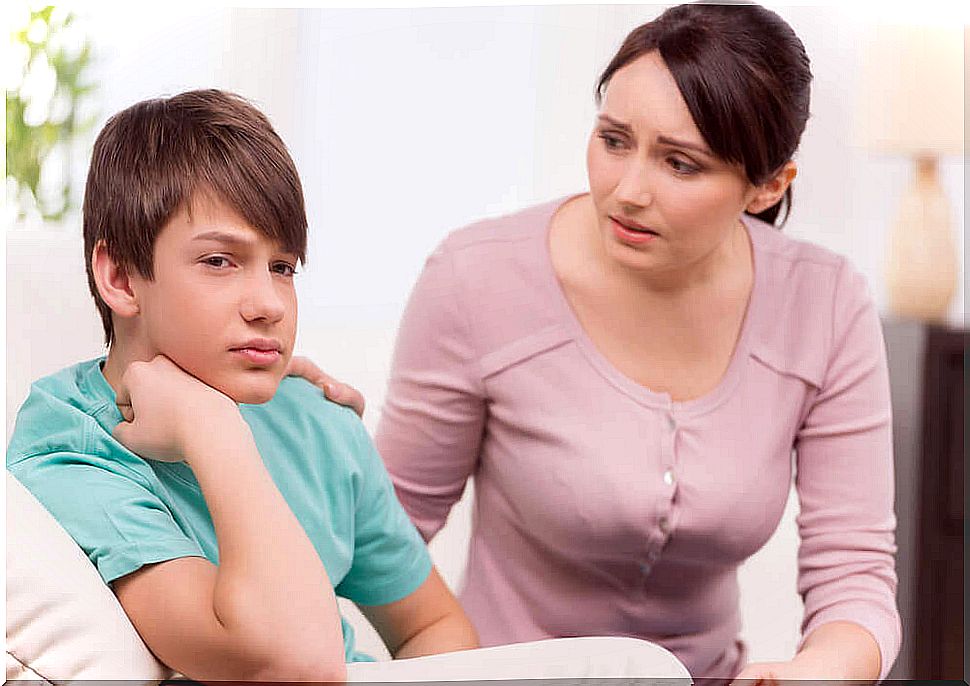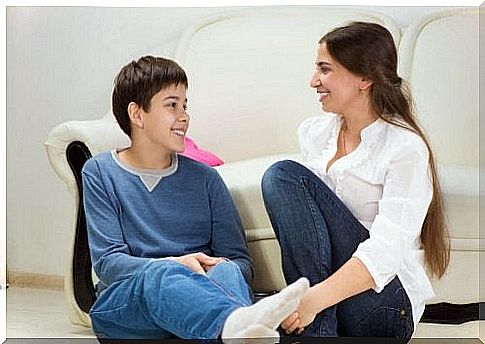What Do I Do If My Child Doesn’t Agree With Me?

If you’ve read this article, you’ve probably already asked yourself: what do I do if my child doesn’t agree with me? Perhaps you think that when they were little, our children used to reason with us about almost everything.
However, as they grow they mature physically, emotionally and intellectually. For this reason, it is normal that from time to time there are differences in the relationship.
Differences with children are accentuated in puberty
Let’s be realistic. When we were young, we went through the same situation with our parents. For various reasons we don’t agree with any behavior, rules, or decisions they put on the table.
According to the article Communication and family conflict in adolescence , conflict in social relationships is accentuated during children’s puberty. In fact, it points out that the origin of the conflict could be due to several causes.

One is the difference between what parents expect of their children, and their actual behavior. Furthermore, the differences may be due to critical cognitive processes, in relation to family norms or parental models.
The children’s dissatisfaction and communication
As you see, children expressing their disagreement is not strange within the family dynamic, or something necessarily bad. On the contrary, the fact that children question decisions or points of view means that they are developing their mental capacities and their own criteria. In other words, they are maturing.
However, what can generate warning signs is the way children express their discontent. In fact, lack of communication or skills related to this is what often leads to conflicts in the family. This problem is accentuated when there is an absence of a welcoming family context and understanding.
The article mentioned above indicates that, between childhood and adolescence, communication in the family wears out and becomes more difficult. So if we ask ourselves what to do if our child doesn’t agree with us, we should think about improving communication.
What do I do if my child doesn’t agree with me
According to Gloria Elena Franco, author of the book “ Communication in the Family” , communicating requires personal forgetting to become interested in the other person. That is, leaving our thoughts for a moment to listen and understand the other person.
listen carefully
In fact, the purpose of communication is fulfilled when there is an exchange. This includes knowing one person’s way of thinking, feeling, or acting. So if your child shares your feelings, listen to him. However, communication is a science that is learned and improved with practice.

Avoid making mistakes in parent-child communication. For example: generalizing, criticizing, yelling, physically or psychologically mistreating your child, or simply not paying attention. Rather, listen carefully to what he says until it’s over.
Remember, your goal should be to know what your child really feels and thinks. For this you will need a lot of patience and, above all, self-control to control your impulses, not to judge or threaten you.
Avoid an overreaction
If you overreact, your child will likely decide not to talk to you anymore to avoid fighting. Also, you will not have the moral authority to teach him how to communicate, or ask him to behave properly.
If your child doesn’t agree with you, and you just feel like you’re going to explode, pause the conversation. Unless you’re calm, you won’t be able to handle the matter effectively. However, the objective is not to avoid confrontation, but to buy time.

Staying calm will allow you to think better about the situation. In fact, meditating will help you understand your child’s position. As a result you will be able to face the conflict in an edifying way, and thus come to a peaceful solution.
Limitations
While there is good communication, sometimes parents and children simply don’t agree with their opinions. This is also normal, because your children are not a copy of you. They have the freedom of choice and thought.
In fact, having an open emotional attitude will help with conflict resolution; If you react negatively and forcefully, the only thing you will get is for your children to stay away from you. If this happens, you will not be able to advise them on decision-making.








